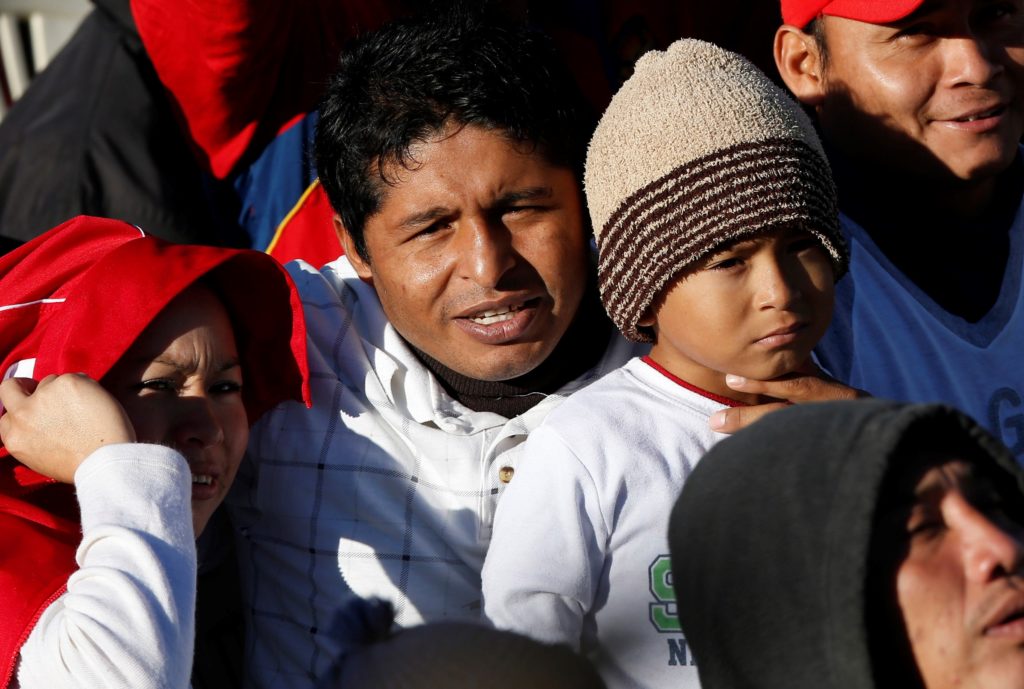Young people continue to value and perceive the family as a community of reference, as stated in article 32 of the Final Document of the Synod of Bishops on Youth, Faith and Vocational Discernment. Moreover, two of the articles unanimously approved (nn. 72 and 95) refer to the need for the family and accompaniment as key elements of the new evangelization.
There is no doubt that the first accompaniment a human being receives takes place in his or her own family. Family relationships are not merely "functional". The personal relationships that are woven in the day to day, with the shared life within families are identity relationships. And it is precisely this shared daily life, the means by which human beings grow in our personal dynamisms and learn the most personal capacity, we learn to love. Certainly, the various crises in families can make it difficult for family relationships to unfold their educative power. Many young people who have already grown up in a family and in a society that has not been able to accompany them in this natural learning of the unconditional nature of family love, may have shortcomings that increase the normal difficulties in their family life, when these young people form their own family. In this way, we could enter into a situation "looping", It might be thought that they will inevitably reproduce in their own families the disaffection experienced in their families of origin. However, this is not the case. It is precisely this experience of lovelessness that leads them to long for something different for themselves and their children. But they need to know how to do it, since they lack the experience.
At Amoris Letitia the need to accompany new families, especially in the first years of family life, is pointed out (n. 211). As Juan José Pérez Soba affirms, "it is not good for the family to be alone.". This is why it is necessary to creatively search for new "spaces of accompaniment". where young families can receive training, support and shared experience. The first years of a family are a time of great effort to adapt and reconcile many areas in a new and still unknown reality: work, friends, family of origin, parenthood, etc. New spouses and parents often live this first stage of life together with a feeling of isolation and overwhelm in the face of numerous difficulties and challenges they had not even imagined. Increasingly, these young couples lack the support of the family environment, or the formation that comes from the experience lived in their families of origin.
It is also a stage in which husbands and wives usually have little time and means available; therefore, it is necessary to look for ways in which they can be accompanied in their task as fathers and husbands in their daily life environment. One place where young parents naturally look for such support is the school. It is precisely in the first years of school life -which coincide with the first years of families- when parents turn to the school for help, also for their family life. Proposing accompaniment from the Christian school is a call to look at the reality of families from a different perspective.
Although it may seem that this is something that does not correspond, or that it implies further complicating the specific teaching function of the educational centers, the school can and should support families. The trust that all accompaniment needs is given in a natural way in the family-school relationship. Moreover, the school of Christian inspiration has an added factor that seems important to me: it can be a natural environment of coexistence, in which families accompany other families, thus favoring a climate in which family life is valued as personal enrichment, and difficulty is not understood as failure, but as something connatural to any interpersonal relationship, which is possible to overcome and which is the way to love.
To make this proposal of accompaniment a reality is a requirement that calls for treating families as they are, that is to say, in a familiar way. It is not a question of substituting for parents or "direct them" from the school in its educational task. It is rather a question of "empower them" and give them back their leading role in the educational task in the family context. To accompany from the school is to help each family discover its specificity, its originality. It is not a question of giving prescriptions, advice or solutions. It is rather to reinforce their role and help them discover the natural tools of education in the family context. It is a task that needs to start from experience, to perceive conflicts as something natural, and to help them develop the ability to overcome crises.
The proposed accompaniment is not a technique, nor does it require additional space or time; it is an attitude, a habit, a way of understanding teaching and the role of the school, at the service of families. It demands above all formation and commitment so that families are not abandoned, who often live their crises alone, in an atmosphere of superficiality, with no one to take care of them. Pope Francis has recalled on several occasions the gap that is opening up between family and school, and the need for both to go hand in hand. The school can be a good point of support, an "angle of repose" that helps each family to be what it can become.
Institute of Higher Studies of the Family, International University of Catalonia (UIC)












